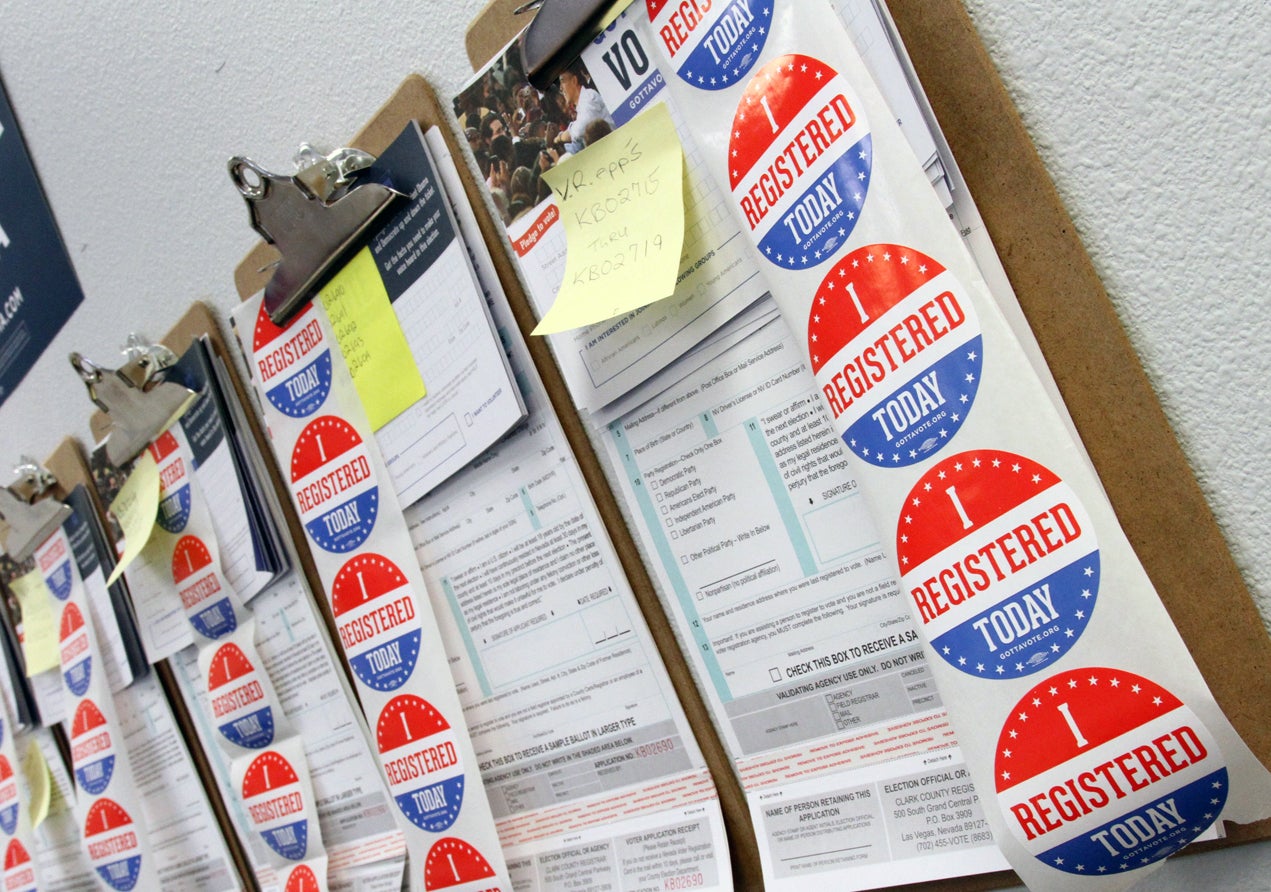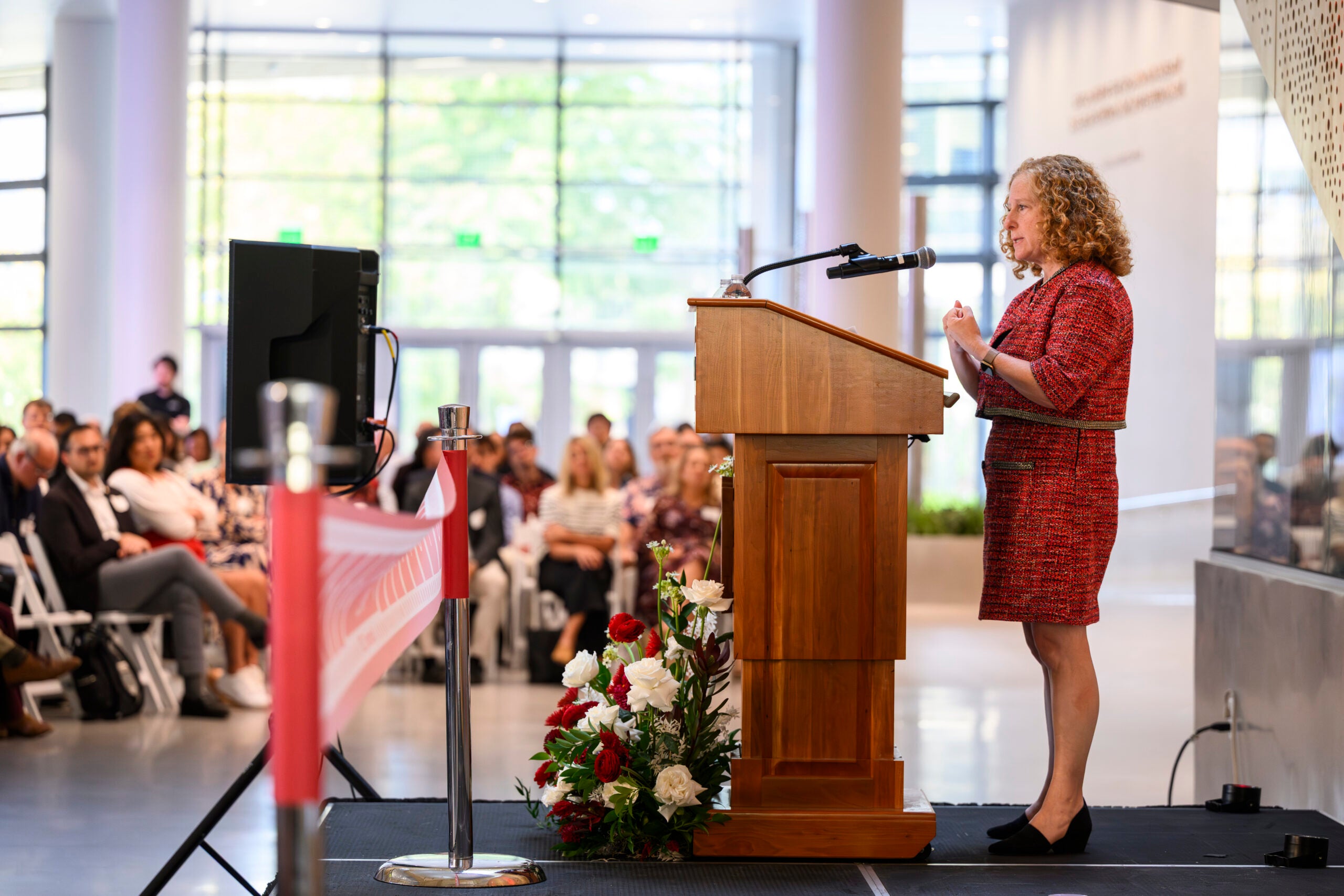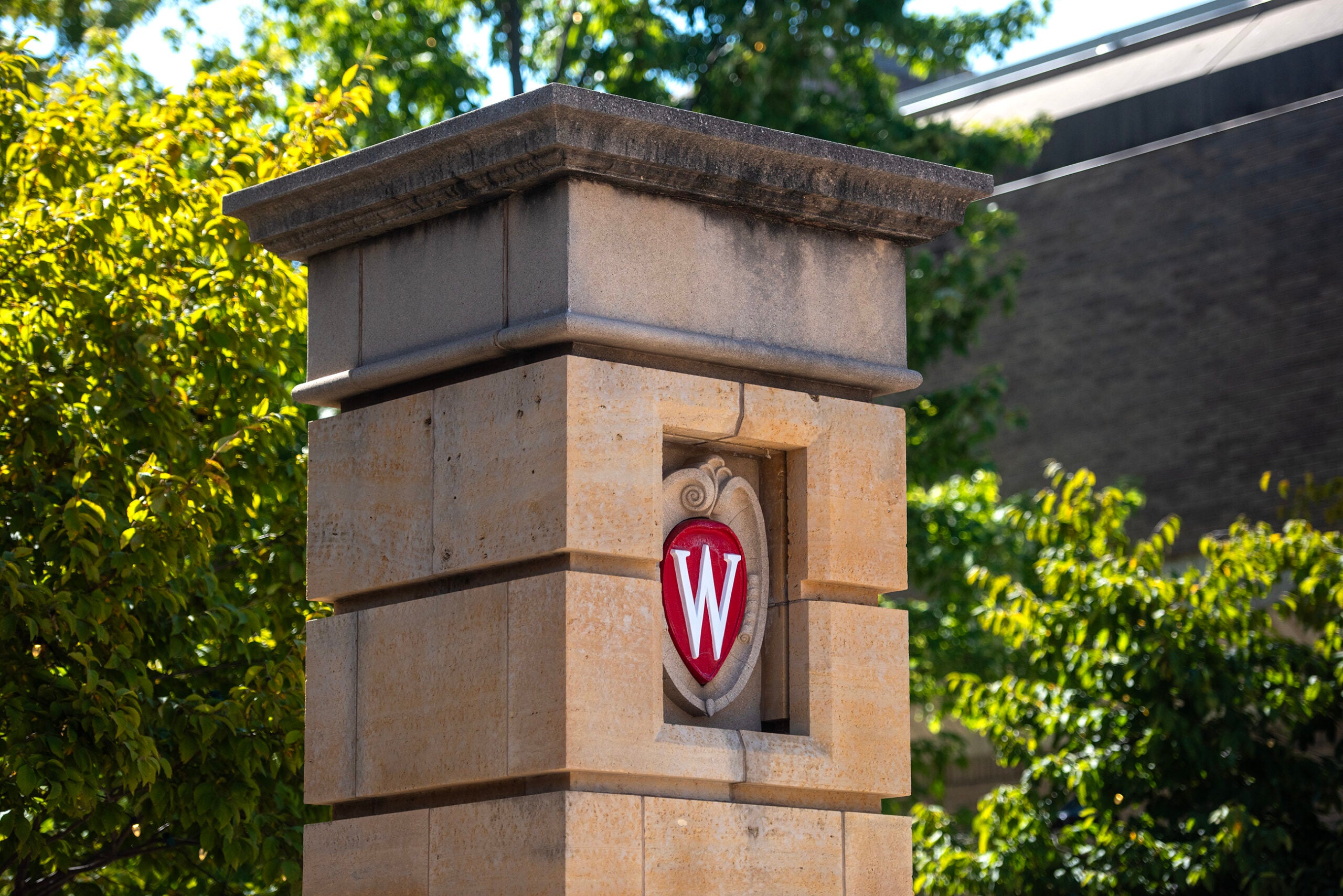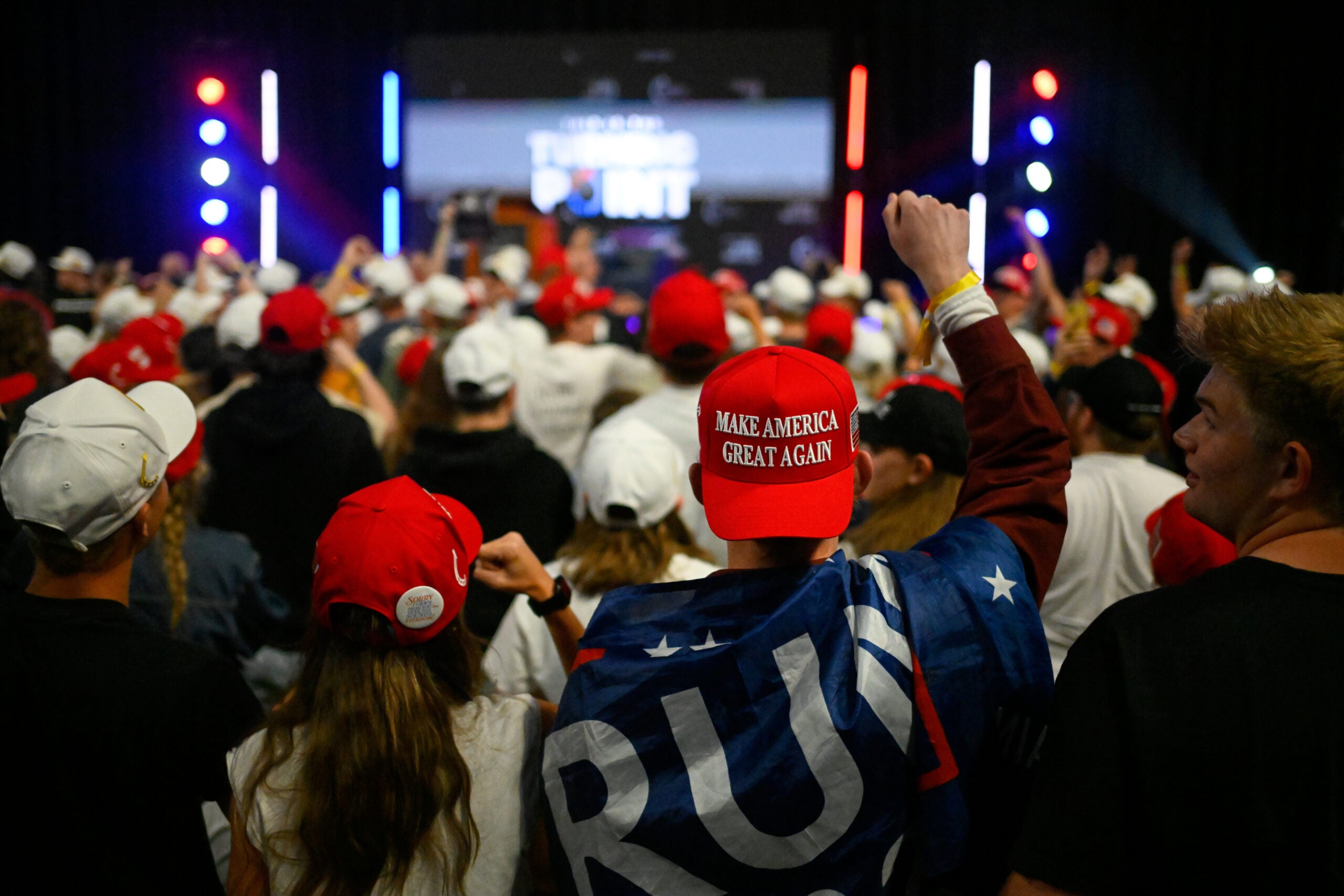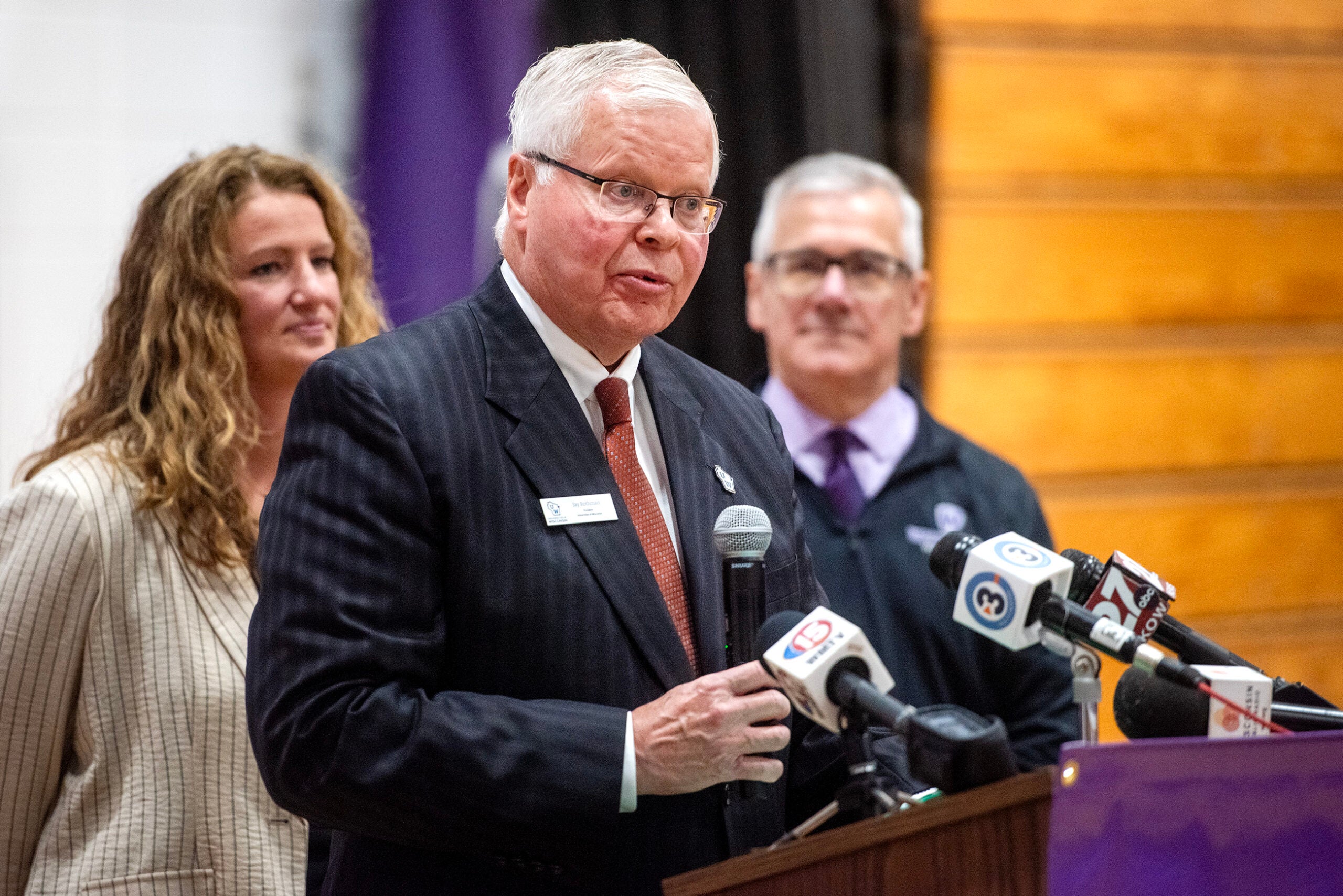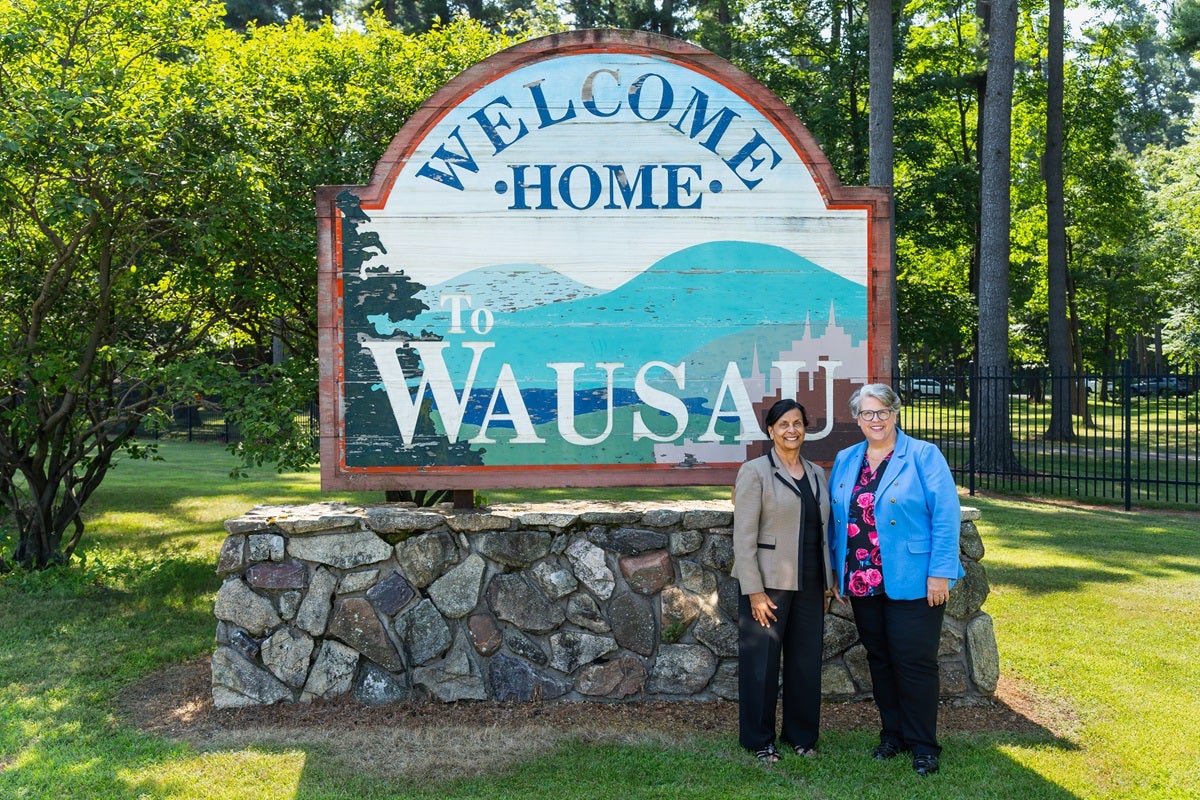With the November general election 40 days away, Wisconsin college students could play an outsized role among peers in choosing the next president, according to national research.
But young people have historically had the lowest turnout among any age group. And now with a growing list of temporary shutdowns at University of Wisconsin System campuses and general uncertainty caused by COVID-19 outbreaks, some college students are facing a new set of challenges in the final stretch of the 2020 campaign.
In early August, the University of Wisconsin-Madison Badgers Vote Coalition held a three-day voter registration drive on campus. A series of tents dotted busy thoroughfares at the state’s largest university, shading poll workers and volunteers who worked to register passing students to vote and help them submit absentee ballots ahead of the August primary.
News with a little more humanity
WPR’s “Wisconsin Today” newsletter keeps you connected to the state you love without feeling overwhelmed. No paywall. No agenda. No corporate filter.
UW-Madison student Tehya Crego, of Milwaukee, cast an absentee ballot for the August primary at one of the tents.
“I thought that was a really great opportunity to come out and a very, like, not crowded situation,” said Crego. “So, I felt that was a really safe way to go about it.”

UW-Madison student CJ Rockwell, left, is assisted by poll worker Clare Witkowski as he votes early Wednesday, Aug. 5, 2020, at UW-Madison. Angela Major/WPR
Just over a month later, UW-Madison announced it would once again move classes online, albeit for two weeks, after a spike in students and staff testing positive for the coronavirus. The university also quarantined students living in two residence halls and several off-campus fraternities and sororities.
UW System campuses in La Crosse and River Falls have also paused classes and issued various quarantines and shelter-in-place orders.
The disruptions to campus life and the possibility that students could be sent home during the final stretch of the presidential election loom large over efforts to ensure students are ready to vote this fall.
Kathy Cramer, a UW-Madison political science professor and co-chair of the non-partisan Badgers Vote Coalition, said that pre-pandemic, volunteers would connect with students directly by holding events in campus common areas.
“And so our strategy right now is to communicate as best we can, primarily through social media, with students and trying to use some humor, you know, engaging with them in a fun way to make sure that they know how they can obtain a voter ID electronically if they need to,” said Cramer.
Wisconsin’s voter ID legislation passed by Republican lawmakers and signed by former Gov. Scott Walker in 2011 has special requirements for college students. It bars campus IDs from being used at the polls unless they have a photo, signature and two-year expiration date. Generally, student university IDs are good for four years. In response, UW-Madison began offering free campus voter ID cards to students. Even with a special voting ID, students need to present an enrollment verification letter at the polls in order to cast a ballot.

A sign at Union South at UW-Madison lets students know they may need additional identification to vote in Wisconsin beyond their regular student ID. Coburn Dukehart/Wisconsin Watch
A 2014 study by the nonpartisan U.S. Government Accountability Office found that voter ID laws in other states reduced turnout among Black people and those between the ages of 18 and 23.
The COVID-19 pandemic and the temporary shift to online classes have created additional obstacles for students working to mobilize the campus vote, said UW-Madison College Democrats chair Rianna Mukherjee. She said in-person connections are the best way to reach students.
“Even though you have Zoom meetings, I feel like people aren’t as interested because it’s really hard to sit in front of a computer or a phone for, like, three hours. You get tired. It’s different,” she said.
During the College Democrats’ first Zoom meeting of the fall semester, members discussed ways to keep students’ interest and get them to engage. One plan was to hold a College Democrats “Jeopardy” trivia meeting, said Mukherjee.
“And, you know, we’ll obviously be silly and make it fun,” she said. “But what we’re excited about is trying to incorporate things about voting registration in Wisconsin for students on campus, whether that’s to register (themselves) or help friends and peers register, because it can be pretty confusing.”
Wisconsin Public Radio, © Copyright 2026, Board of Regents of the University of Wisconsin System and Wisconsin Educational Communications Board.

